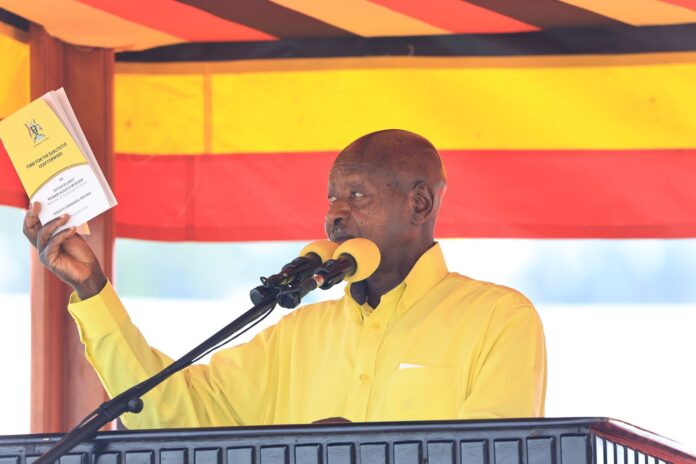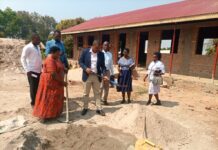By Johnson Kanyesige
President Yoweri Kaguta Museveni has urged African nations to move beyond economic cooperation and embrace full political integration as a means of securing the continent’s future. Speaking on Wednesday to members of the National Resistance Movement (NRM), Museveni warned that prosperity alone cannot guarantee safety from global threats.
He noted that only a united and strategically coordinated Africa—through initiatives like the East African Federation—can achieve true security, and cautioned anyone against destabilizing Uganda’s peace and stability.
Museveni made the remarks while presiding over the Central Executive Committee (CEC) meeting of the NRM, where new leaders of the apex committee are being elected. Former Speakers Rebecca Alitwala Kadaga and Anita Annet Among are contesting for the position of Second National Vice Chairperson (Female). Museveni was earlier endorsed unopposed as Party Chairperson up to 2031, to be deputized by Alhaji Moses Kigongo.
In his address, Museveni laid out a roadmap for Uganda and Africa to avoid becoming a “Latin America in Africa”—a region with economic potential but plagued by insecurity, disunity, and underdevelopment. He stressed the importance of strategic security, noting that even developed nations have needed external assistance in times of crisis, citing World War II as an example.
Global power, Museveni said, is no longer measured solely by strong armies on land. Military and strategic superiority now spans four dimensions: land, air, sea, and space. He noted that only the United States, Russia, China, and India have reached the moon, and asked whether Uganda alone could achieve such capabilities—answering in the negative.
According to Museveni, African countries must overcome excessive political fragmentation to be secure in all four dimensions. While the Continental Free Trade Area (CFTA) unites markets, strategic security demands political federation. He called for the East African Federation, leveraging shared languages like Kiswahili and cultural ties.
He highlighted seven key priorities for every Ugandan and African leader: peace, development, wealth, jobs, service delivery, markets, and political federation, describing these as the building blocks for a “qualitative leap forward.” Museveni noted that Uganda’s economy is currently valued at around $66 billion, largely from raw materials like coffee, fruits, maize, bananas, beef, cassava, and timber.
Processing and adding value locally, he said, could grow the economy to $500 billion. He emphasized investment in education, science, and technology to drive this transformation, moving Uganda from an agricultural-based society to a modern one with a productive middle class and skilled workforce.
Addressing newly elected NRM leaders, many of whom are young, Museveni urged them to lead by example, use government resources wisely, and focus on lifting people out of poverty through programmes like the Parish Development Model (PDM) and Emyooga. He reminded them to fight land grabbing, maintain roads, and ensure law enforcement operates effectively in their areas.
Museveni also paid tribute to fallen comrades, including the late Jacob Oulanyah, former Speaker of Parliament, and prayed for their eternal peace. He thanked the CEC, NEC, and the National Conference for endorsing his continuation as party leader and presidential flag bearer for 2026–2031, promising to leverage Uganda’s growing capacity to move forward. Meanwhile, elections are expected to commence shortly, with Museveni observing under heavy security.



